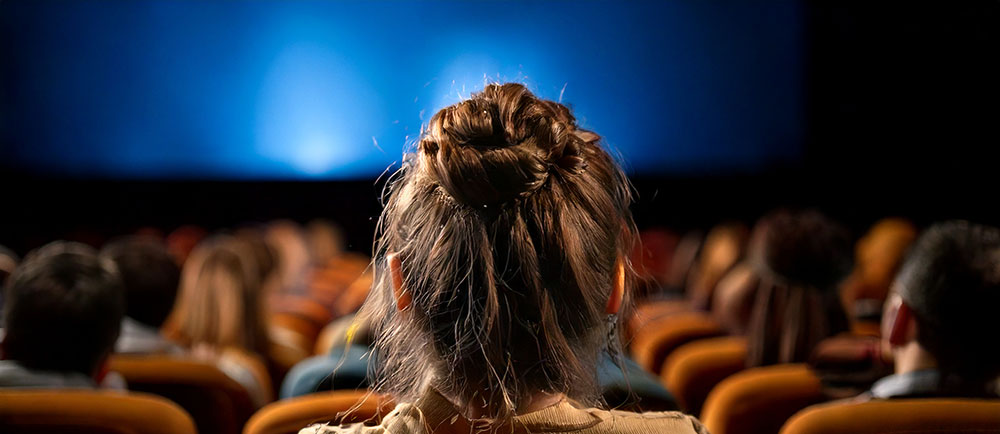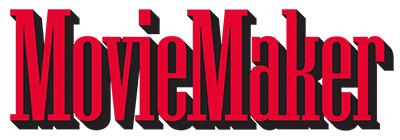
March 2025
 Written by: Rechna Varma is a filmmaker and associate professor of Professional Practice in Cinematic Arts at the University of Miami. Do Not Disturb, the fifth film she has produced was released theatrically last year by Dark Star Pictures. As an educator and filmmaker straddling independent cinema and television, her work explores the evolving relationship between art and commerce in modern filmmaking.
Written by: Rechna Varma is a filmmaker and associate professor of Professional Practice in Cinematic Arts at the University of Miami. Do Not Disturb, the fifth film she has produced was released theatrically last year by Dark Star Pictures. As an educator and filmmaker straddling independent cinema and television, her work explores the evolving relationship between art and commerce in modern filmmaking.
Cinephiles are becoming an endangered species and I’m watching their extinction unfold in my own classroom.
I’m witnessing a generation that has been trained to look down at their phones — forget the transformative power of looking up at the big screen together. You’d think I'd be more worried about A.I. taking away the craft and human joy of filmmaking and teaching. Instead, I’m witnessing something more immediate and alarming.
For the first time in my career, this past fall semester, my Cinematic Arts majors admitted they hadn't watched a single movie in theaters all summer. Now more than ever, for the sake of community and culture, we need to re-normalize going out to the movies.
The Importance of Movie Theaters
I am not the first to notice this problem. Sean Baker, for example, just used his Best Director Oscar speech for Anora to make the case for the theatrical experience. But I’m getting an up-close, front-row seat to the phenomenon of future filmmakers who have stopped watching movies in movie theaters.
I’ve witnessed this transformation firsthand, and it parallels a phenomenon we see in nutrition and food culture. Just as people who've never experienced fresh, seasonal produce won't seek it out, audiences deprived of artistic cinema lose their appetite for it or don’t know it exists. In communities with food insecurity, we find nutrient-deficient people; similarly, when we remove appreciation for art and craft from audiences, they become susceptible to consuming cheap, processed entertainment, dimming our lights in both cases.
I believe the root cause of this crisis lies in taste. Since the first installment of Iron Man (2008) appeared (setting the bar high for superhero movies) we’ve raised a generation of moviegoers who reflect on their childhood through a narrow lens of superhero fatigue grown out of a rock bed of reality television, with a distant sense of the power that was once wielded by a movie star (a trained actor with talent, not a performative influencer).
As Martin Scorsese wrote in The New York Times in 2019, contemporary cinema has largely abandoned its status as an art form. Instead of cultivating audience appreciation for cinematic art, American movie theaters primarily offer a limited buffet of entertainment. This diet has augmented into drive-thru mode with TikTok, YouTube, and Instagram, delivering what Dr. Anna Lembke, American psychiatrist and chief of the Stanford Addiction Medicine Dual Diagnosis Clinic at Stanford University, describes in Dopamine Nation (2021) as a constant stream of addictive stimulation.
The consequences of removing art from our cultural diet are profound, paralleling the impact of food deserts across America, as documented by the USDA. My classroom experience illustrates this decline: Spaces that once buzzed with passionate discussions about life have transformed into exercises in reluctant consumption, like trying to convince resistant children to eat their vegetables.
I returned from summer break to find my students hadn't watched anything they deemed to be “interesting.” They hadn’t bothered going to the movies because “nothing was playing” or “nothing looked good.” This could be due to redlining or because their attention has been grabbed by all the other attention seeking alternatives.
Let me underscore this point: Cinema students are actively choosing not to go to the cinema. But I’m not sure it’s a choice. We, the film industry, bear some responsibility for this shift and can’t solely blame the gambling algorithms that are the backbone of competitive tech.
How Watching Movies Changed
The industry has prioritized quick profits and shareholder value over nurturing future audiences for the theatrical experience. I sense executives are green-lighting films more heavily based on algorithms and derivatives instead of gut instincts that look for surprise and good art. If we only get Ryan Reynolds films fed to us, then that is all you will see us ask for.
What’s worse is that theater chains aren’t competing with the home theatre. I’d love to find one that doesn’t have noise leakage or carpets that smell like toilets, and if we’re making a wish list, let’s add back an usher to help keep the talking and cell phones down while the movie is playing.
Just as we benefit from eating a colorful plate of food, our minds need exposure to diverse films and storytelling approaches.
Some might consider it absurd to compare art to necessities like food. Yet intentional artistic creation serves essential functions in human society: personal expression, creativity, cultural reflection and preservation, emotional impact, social commentary, and of course, education and intellectual engagement.
While food fuels our bodies, art nourishes our hearts and minds. Many of humanity’s greatest innovations have sprung from artistic stimuli.
Leonardo da Vinci’s detailed anatomical drawings of the human body, which were as much artistic studies as they were scientific observations, revolutionized our understanding of human anatomy. Stanley Kubrick's 2001: A Space Odyssey (1968) had a remarkable influence on real-world technology. (The film featured tablet computers and video calling decades before they became reality.)
Even fashion trends have been shaped by film. The white dress Marilyn Monroe wore in The Seven Year Itch (1955), revolutionized summer fashion, while the leather coats in The Matrix (1999) defined the streetwear of its era. More recently, Black Panther (2018) sparked a global embrace of Afrofuturistic fashion and traditional African design elements in mainstream fashion.
Art remains fundamental to human life, offering layers of meaning from the personal to the universal. And yes, both good art and good food need to be financially accessible, as they once were.
The crisis in cinema appreciation is reversible. Just as we can develop sophisticated palates for food through exposure and education, we can cultivate cinematic taste.
We can start by following our favorite actors, directors, and genres. Just as reading varied books develops your literary vocabulary, immersing yourself in diverse movies develops countless points of reference. Search for clarity and freshness in the filmmaker’s point of view, recognizing distinctive styles and perspectives. Think about how the work affects you emotionally. How does it resonate with you?
In his book On-Demand Culture (2013), Chuck Tryon examines how digital delivery affects our experience of movies. He looks at how the private, controllable nature of streaming viewing can change emotional investment — for instance, the ability to pause during intense scenes, or how binge-watching can create different emotional rhythms than traditional viewing.
Don't only think about the film itself; how you watched it will play a role in how you feel about it — simply saying “movies on airplanes” makes this point clear. Let’s not forget that a film was designed to be screened in a theatre for a room full of people. Digitizing it has brought “film” into our homes. There is a huge loss of impact in that step.
When watching older films, consider each film within its genre and historical period, understanding its place in cinema's evolution. A screenwriting colleague of mine was urged by students to remove the 1997 Academy Award-nominated film As Good as It Gets from their syllabus because they were offended by the character Melvin Udall, portrayed by Jack Nicholson. Contextualization builds better understanding.
Go further by analyzing the craft. Expand our understanding of film techniques and storytelling. Study the elements of filmmaking technique. Identify patterns and excellence in cinematography, editing, sound, and direction. Consider the production design, costume, hair and makeup. Everything is deliberate and designed.
Ask why the choices you see were made? Reflect on what works for you and what doesn't. How might the film be improved or varied to your liking through storytelling and craft, now that you have a better understanding of both?
And if you’ve made it this far, I'd further challenge you to practice. Craft your own film to better understand the challenges and choices filmmakers face.
The theatrical experience remains irreplaceable: Sharing moments of awe, illumination, and enjoyment with strangers in a darkened room. Nothing but uninterrupted focus and immersion into story.
Cinema allows us to experience common emotions through stories from around the world, feeling these responses alongside our local community and perfect strangers.
This is why we need to breed cinephiles — they engage in our collective human experiences through the art of film, holding us to a higher standard. If the phenomenon of Barbenheimer (2023) and Glicked (2024) showed us anything, it’s that when filmmakers dare to challenge, innovate, and create, audiences will show up in force.
Let’s make it the rule, not the exception.

